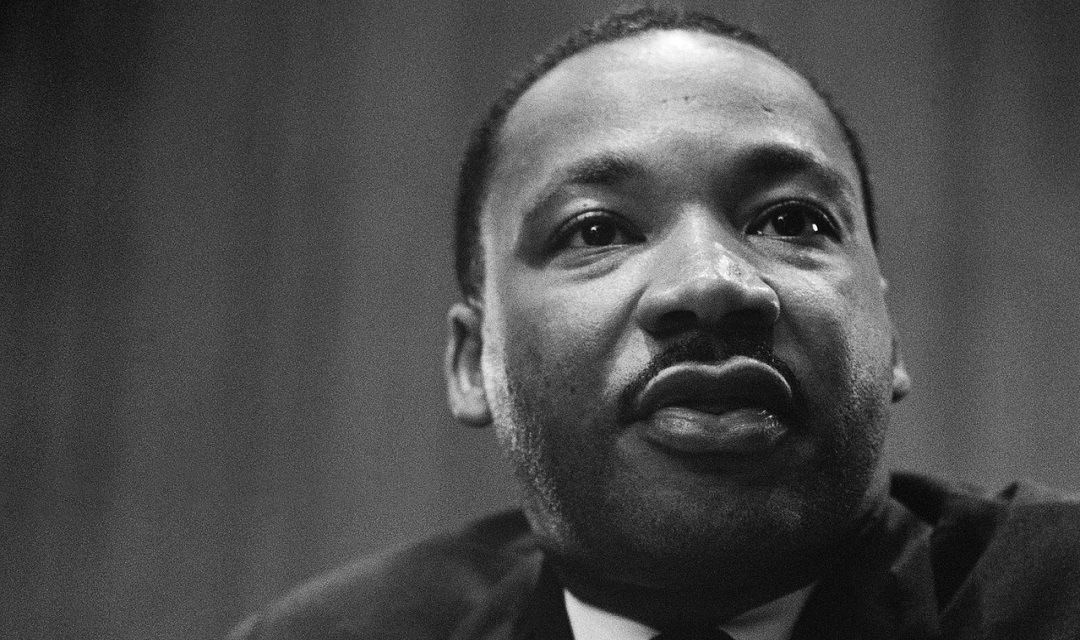Listen to this article (10:51min)
Viewpoint articles address relevant contemporary issues in discernment and apologetics from a particular perspective that is usually not shared by all Christians, with the intended result that Christians’ thinking on that issue will be stimulated and enhanced (whether or not people end up agreeing with the author’s opinion).
The full text of this article in PDF format can be obtained by clicking here. For more information about the Christian Research Journal, click here.
For the past few weeks, I have been reading the essential writings of Martin Luther King Jr., including his speeches, books, interviews, and articles.1 The experience has been eye opening, challenging, and enjoyable.
Even though King had some significant character flaws, and I disagree with many of his positions, his public posture offers some powerful lessons for apologists today (and really, for anyone).2 I would highly encourage apologists to take the time to study some of his writings.3 Here are my five big takeaways:
1. Love Your Enemies. Given the way Black Americans were treated during his lifetime, King had as much reason as anyone to hate his enemies. And yet he consistently emphasized to fellow Black Americans that they should be driven by agape love, that is, a love that truly desires the good of the other.
In his 1960 speech “The Rising Tide of Racial Consciousness,” King emphasized that the Black struggle must not be to defeat White people but to win their friendship and understanding. He emphasized over and over again that the goal of ending discrimination must not involve shaming or hating the enemy but helping them see the light through genuine acts of love.
And then five years later, in a Playboy interview, King describes his response when his six-year-old daughter first encountered segregation. She had seen a television commercial for Funtown (which he describes as a sort of miniature Disneyland) and desperately wanted to go. Sadly, he had to explain to her that because of prejudice, colored children were not welcome. And it pained him to see the sense of inferiority and disappointment on her young face.
Yet rather than raising his daughter to hate White people, he says, “But it was of paramount importance to me that she not grow up bitter. So I told her that although many white people were against her going go Funtown, there were many others who did want colored children to go.”4 King chose to find the good in some White people of his day. He refused to hate Whites, and in fact was committed to loving them, even amidst the horrible things many said and did to him and his family.
This, of course, is a biblical idea. In the Sermon on the Mount, Jesus said, “But I say to you, love your enemies and pray for those who persecute you” (Matt. 5:44 ESV).
Sadly, sometimes apologists forget this truth. In an age when Christian beliefs are increasingly considered extremist, and there are efforts both to punish and silence Christians,5 we must not respond with bitterness or anger. We must respond (as King would encourage us) with love.
2. Ends Do Not Justify the Means. In a 1961 address called “Love, Law, and Disobedience,” King emphasized how the means of ending racial injustice must be as just as the message. He explained, “We cannot believe, or we cannot go with the idea that the end justifies the means because the end is a preexistent means.”6
This idea appears like a drumbeat throughout his writings and was at the heart of his philosophy of nonviolent resistance. For the sake of his conscience, King refused to adopt evil methods, even if those methods may have helped advance the cause of justice.
Out of a desire to advance the cause of Christ, apologists may be tempted to adopt unjust means. For instance, apologists often are tempted to overstate the evidence (and it can be especially hard because we have good intentions of seeing someone convinced or converted!).
I have seen apologists use terms like “overwhelming evidence” for their views and “utterly false” for others. This may be true sometimes, but is the evidence typically that black-and white? The truth and evidence are on our side, so we have no reason to misstate them.
When we misstate the evidence, especially in an age when people can check the facts, we undermine our personal credibility as well as the credibility of the broader church. King would remind us that the ends and means must both be just.
3. Count the Cost, but Be Optimistic about the Future. King was fully aware that his efforts could cost him his life. He was stabbed, his home was bombed multiple times, and he ultimately was shot to death. Amidst his suffering, however, he refused to succumb to despair. He believed good would overcome. In a 1961 address, King said, “Before the victory of brother is achieved, some will maybe face physical death, but we shall overcome. Before the victory is won, some will lose jobs, some will be called communists, and reds, merely because they believe in brotherhood, some will be dismissed as dangerous rabble-rousers and agitators merely because they’re standing up for what is right, but we shall overcome.”7 Then in his final public address on April 3, 1968, the night before his assassination, King proclaimed these seemingly prophetic words:
Well, I don’t know what will happen now. We’ve got some difficult days ahead. But it doesn’t matter with me now. Because I’ve been to the mountaintop. And I don’t mind. Like anybody, I would like to live a long life. Longevity has its place. But I’m not concerned about that now. I just want to do God’s will. And He’s allowed me to go up to the mountain. And I’ve looked over. And I’ve seen the promised land. I may not get there with you. But I want you to know tonight, that we, as a people will get to the promised land. And I’m happy, tonight. I’m not worried about anything. I’m not fearing any man. Mine eyes have seen the glory of the coming of the Lord.8
King was fully aware of the potential cost of fighting for justice. He embraced it. Yet he still found peace and hope through his faith in the Lord.
Given our increasingly secular cultural milieu, it is easy to slip into despair. It is easy to give up. But King would urge against it. No matter how dark things may appear, and no matter how much it may cost us to advance the gospel, we need to remember King’s words: “We shall overcome.”
4. Everyone Can Make a Difference. King seemed utterly convinced that each person could make a difference — and was called to make a difference — in the world for good. In a commencement address at Lincoln University (1961), King said, “I call upon you not to be detached spectators, but involved participants, in this great drama that is taking place in our nation and around the world.”
King understood that movements take place when you change hearts and minds. And he also understood that everyone had a role to play in this effort. In a speech to youth in 1959, King said, “Whatever career you may choose for yourself — doctor, lawyer, teacher — let me propose an avocation to be pursued along with it. Become a dedicated fighter for civil rights. Make it a central part of your life.”9
Even if you are not a professional apologist (whatever that means), you too can make an important contribution. No matter what your background, profession, or experience, you can make a difference.
In the apologetics program at Biola University, I teach a class called “In Defense of the Resurrection.” At the end of the class, students are assigned a final application project in which they have to find a creative way to put their knowledge into action. They write blogs, engage skeptics in conversation, make YouTube videos, write songs, teach classes, and more. The goal of the project is simply to encourage students to find a way to make a difference. We may not all be in full-time apologetics work. But we can all make a contribution. As King would say, we are each called to make a difference for the advancement of the gospel.
5. Have a Tough Mind, but a Tender Heart. In his book The Strength to Love, King said, “We must combine the toughness of the serpent and the softness of the dove, a tough mind and a tender heart.”
King spoke truth unequivocally. He wasn’t afraid to criticize the government for passing unjust laws. And in his famous Letter from Birmingham City Jail, he boldly expressed his disappointment with the White church and its leadership for their failure to support the rights of African Americans.
And along with this, he called people to think deeply. In his book The Strength to Love, King called people to develop their minds: “Let us consider, first, the need for a tough mind, characterized by incisive thinking, realistic appraisal, and decisive judgment. The tough mind is sharp and penetrating, breaking through the crust of legends and myths and sifting the true from the false.”10
King was clear: Christians must be tough-minded and learn how to discern the true from the false, fact from fiction. And yet he also says that the gospel demands Christians cultivate a tender heart. Speak truth boldly, but do it from a heart of love. Refuse to become bitter. Be motivated by love.
Martin Luther King Jr. died roughly fifty years ago, yet his legacy continues. While the world has changed since the time King led the civil rights movement, there are many lessons from his writings that wise apologists will apply to their lives and ministries today. — Sean McDowell
Sean McDowell, PhD, is an assistant professor of Christian apologetics at Biola University. He has authored or coauthored more than fifteen books, including A New Kind of Apologist (Harvest House Publishing, 2016).
NOTES
- A Testament of Hope: The Essential Writings and Speeches of Martin Luther King, Jr., ed. James M. Washington (New York: HarperCollins, 1986).
- Editor’s note: See LaShawn Barber, “Martin Luther King, Jr.’s, Legacy,” Christian Research Journal 33, 01 (2010), http://www.equip.org/article/martin-luther-king-jr-s-legacy/
- Please note that I am not comparing the racism the Black community faced in the ‘50s and ‘60s with the predicament Christian apologists face today in the West. I am simply aiming to apply some principles from his writings to the contemporary apologetics task.
- “Playboy Interview: Martin Luther King, Jr.,” A Testament of Hope, 342.
- See Josh and Sean McDowell, The Beauty of Intolerance (Uhrichsville, OH: Barbour Press, 2016).
- “Love, Law, and Civil Disobedience,” A Testament of Hope, 43.
- “Love, Law, and Civil Disobedience,” A Testament of Hope, 52.
- “I See the Promised Land,” A Testament of Hope, 286.
- “Speech Before the Youth March for Integrated Schools,” A Testament of Hope, 43.
- “The Strength to Love,” A Testament of Hope, 492.









